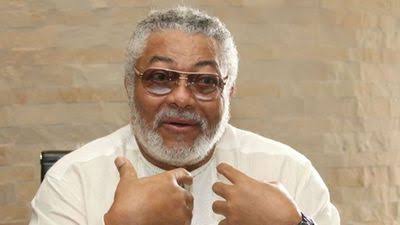Jerry John Rawlings was born on 22 June 1947 in Accra, Gold Coast, and a British colony. Its
Parents are Aboriginal Victoria Agbotui and James Ramsey John, a chemist from Castle Douglas, Scotland. James Ramsey John was married in England to someone else, with a family living in Newcastle and London. Rawlings attends Achim Ôta School in Accra. He is the only child born to his mother, herself from ethnic groups, the Nzema and Ewe, of low numerical importance. This lack of a significant lineage proved to be a political advantage to Rawlings as it freed him from family and tribal pressures. Rawlings married Nana Konadu Agyeman, whom he met at Achimota College. They have three daughters.
Military Career
He entered the Ghanaian Military Academy in Teshie in 1968. The following year, he became a Ghanaian Air Force Air Pilot and was promoted to the rank of lieutenant. Poverty is then expanding in a country governed since 1966 by a corrupt and repressive military region5. Jerry Rawlings led a first coup attempt, on May 15, 1979. His attempt failed. He is arrested.
First Presidency
Three weeks later, freed by other officers after being sentenced to death, he organized a new coup, on June 4, 1979, which overthrew the Fred Akuffo regime and brought it to power. On 24 September 1979, he ceded power to a civilian government led by President Limann.
Second Presidency
Dissatisfied with the civil power, which he considered corrupt, he regained control of the country on 31 December 1981 by a new coup d’état which overthrew the Limann regime.
He then became the Chair of the Provisional National Defense Council. It does not claim either Marxism or capitalism, but, faced with an economic crisis, it applies from 1983 a liberal economic policy known as structural adjustment, responding to the wishes of the International Monetary Fund and the World Bank, which give loans in exchange. Concerned, however, to maintain the central role of the state in the economic life of the country, Jerry Rawlings endeavored to slow down the dismantling of the public sector and privatizations. Investments and loans enable it to carry out a policy of modernization of rural areas and to finance social programs, thus limiting the negative social impact of “structural adjustment” on the poorest populations. Ghana emerged from the recession and experienced an average growth rate of 5% during the decade 1983-93, while inflation fell to 10%.
On external policy issues, he revisits the pan-African and third-wordlist positions of Ghana’s father of independence, Kwame Nkrumah. Opposed to all the «exploiters of Africa» he approaches Fidel Castro’s Cuba and Gaddafi’s Libya. He is also close to the President of Burkina Faso, Thomas Sankara.
In Ghana, in 1989, Rawlings formally spoke out against excision and other types of harmful traditional practices.
In 1992, Rawlings resigned from the army, established multiparty rule, and founded the National Democratic Congress. It engages the country in a process of democratization.
Multiparty
He was elected President on 7 December 1992 and took office on 7 January 1993. The Fourth Republic of Ghana is proclaimed.
As President of the Economic Community of West African States, he became particularly involved in the settlement of the Liberian crisis. While Ghana is seen as a model of stability in West Africa, Rawlings enjoys great prestige abroad for its peacemaking role in regional crises.
However, the country suffered an economic crisis from the mid-1990s and the government was confronted with social movements caused by the introduction, under pressure from the World Bank, of a system of value added tax. Prices go up 60% and living standards go down again.
The popularity of Jerry Rawlings, although declining, remains high in popular circles, while the opposition and the press are working to attack his image. On 7 December 1996, he was re-elected as President of the Republic of Ghana. He began his second term on 7 January 1997. After two terms, the limit provided by the Ghanaian Constitution7, Rawlings endorsed the candidacy of its vice-president, John Atta Mills, to the presidency in 2000, on behalf of his party. But on 7 December 2000, the opposition candidate of the New Patriotic Party (NPP), John Kufuor, was elected president. The alternation is peaceful, Rawlings passes in turn in the opposition. On 28 December 2008, the National Democratic Congress candidate John Atta-Mills was elected president, marking a new political alternation. Again, this alternation is peaceful. Aged 73 years old, he died on November 12, 2020, at the Korle-Bu University Hospital (en) in Accra, where he had been admitted a week earlier. His death comes almost two months after that of his mother, Victoria Agbotui, on September 24, 2016. Following his death, President Nana Akufo-Addo announced seven days of national mourning in his honour. Rawlings’ family asked the Ghanaian government (en) for permission to bury him in Keta in the Volta region. His funeral is scheduled for December 23, 2020 at Independence Square.

